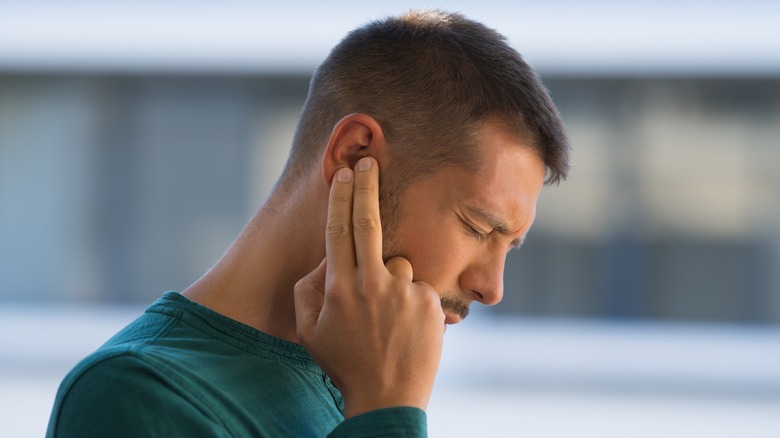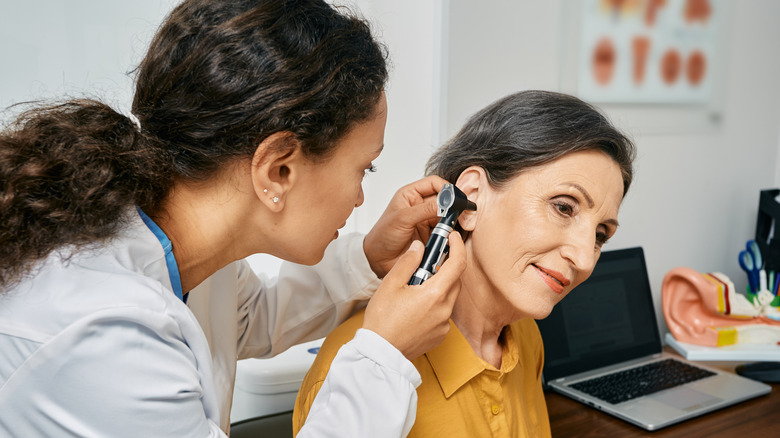Here's How You Can Effectively Treat Tinnitus
For many people worldwide, constant noise is part of everyday life. Internal sounds such as ringing, whistling, or roaring are heard almost 24 hours of the day. According to Cleveland Clinic, this is known as tinnitus. It's a very common condition that affects around 50 million people in the United States. However, it's not a disease, but a symptom of a malfunction in your auditory system, including the inner ear and the brain, per the National Institute on Deafness and Other Communication Disorders (NIDCD). It can arise when a piece of ear wax is blocked in your ear canal or from a serious health condition like a brain tumor.
According to Mayo Clinic, other likely causes include old age, exposure to loud noises, tobacco and alcohol abuse, and chronic health problems (like obesity, high blood pressure, and arthritis). Due to the wide variety of risk factors, it's clear that tinnitus has no single cause. One 2017 study published in the journal Genetics in Medicine suggests that the condition might even be hereditary.
If you think you have tinnitus, or you're curious about how to treat the condition effectively, this article offers further information on the various treatment options and preventative measures.
Tinnitus treatment options
To understand if you have tinnitus, you might need a hearing examination as well as various imaging and lab tests (via Mayo Clinic). If the tests are positive, some medications and treatment options exist to help manage tinnitus symptoms. According to the University of California San Francisco (UCSF), tinnitus can be a symptom of a more serious disorder — so treatment will depend on the medical cause. As the causes vary, the university confirms that no single drug exists for the condition; some people might benefit from taking antidepressants and anti-anxiety medications. However, medications work differently for everyone. In some cases, medications can also cause tinnitus. Your doctor might advise stopping or reducing dosage (via Mayo Clinic).
Besides medications, some other treatment options include earwax removal and treatment of blood vessel conditions. Therapy is another viable treatment option. Some common ones include cognitive, sound, and bimodal therapies (via WebMD).
Tips to prevent tinnitus
According to British Tinnitus Association, various bad habits make us more susceptible to tinnitus. For example, putting cotton buds and ear plugs in the ear canal might cause an ear infection, ultimately triggering tinnitus. Stress is also listed as another trigger; so eating well and leading a stress-free life is vital.
Regarding nutrition, a 2018 study published in the Asia Pacific Journal of Clinical Nutrition (APJCN) suggests a strong relationship between high sodium intake and hearing impairment. When concerning fitness and exercise, another 2021 study published in the journal Geriatrics also finds that hearing loss among seniors between 60 and 69 was associated with a worse physical activity profile. This highlights the importance of frequent exercise and improved ear health. As for smoking, it can cut short blood supply-sensitive nerve cells in the ear (via WebMD). Therefore, kicking the habit might help reduce your risk of tinnitus.



